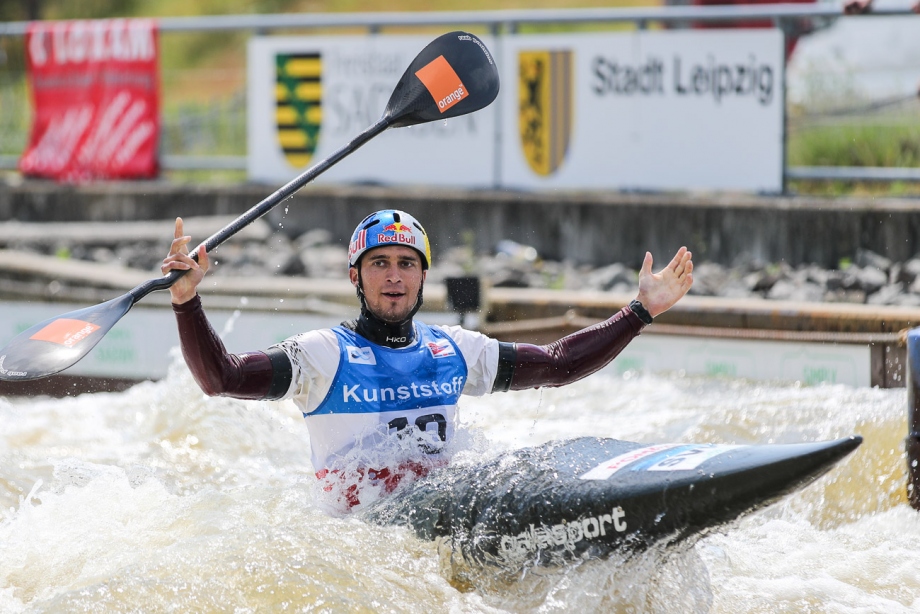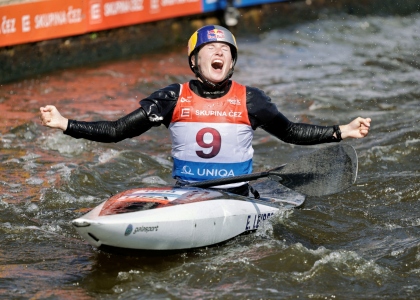There was a look of despair on the face of Czech Jiri Prskavec when he crossed the finish line of the men’s kayak slalom final in Rio five years ago, an almost certain gold medal blown with a careless gate touch that dropped his podium position from gold to bronze.
It was one of those heartbreak moments, a split-second error that brings the curtain crashing down after four years of blood, sweat and tears. He was one of only two paddlers in that high-class 2016 final to pick up a penalty.
Pint-sized Prskavec was only 23-years-old at the time, and was already a world champion. Even then you got the feeling he would be back in Tokyo, faster and stronger.
And he is. Just like Rio, he comes to the Olympics as the reigning world champion. He was also world championship silver medalist in 2018, and won his world cup race this year.
He is the form athlete in Tokyo, and definitely the paddler who will keep all his competitors lying awake at night.
For a country where men’s kayak slalom is so popular and so strong that is it almost a national pastime, it is somewhat of a mystery that the Czech Republic has never won an individual K1 gold medal at an Olympic Games.
But it will not be a cakewalk for Prskavec in Tokyo. Yes he is world champion, yes he has winning form this year, but that win came on his beloved Prague course. And since 2017 he has had only one other world cup win, also in Prague, back in 2019.
Veteran Peter Kauzer, the oldest male paddler in Tokyo, looms as a serious threat. The 37-year-old is suiting up for his fourth Olympics, finished second in Rio in 2016, and is possibly making his final Games appearance, although he is refusing to rule out the possibility of trying for Paris in 2024.
Kauzer will also be hoping for some positive vibes from his roommate in the Olympic village, canoe gold medalist Benjamin Savsek.
Germany’s Hannes Aigner is competing at his third Olympics, won bronze in London in 2012 and finished fourth in Rio, and was world champion in 2018. But the 32-year-old does not win often, and will need to be at his very best on Friday.
The athlete everyone will be watching closely will be Slovakia’s Jakub Grigar. He was just 19 in Rio when he made his Games debut, and made everyone sit up and take notice when he posted the fastest semi-final time.
His final did not go to plan, eventually finishing fifth, and since Rio he has struggled to recapture his sizzling form. However he won gold this year at the final ICF slalom world cup event before the Olympics, and spoke after about his new approach to paddling which had transformed the way he was racing.
Italy’s Giovanni de Gennaro, second at this year’s European championships, is at his second Olympics after finishing seventh in Rio, while at 35, Frenchman Boris Neveu is making his long overdue Olympic debut, seven years after he was crowned ICF world champion.
Australia’s Lucien Delfour, Great Britain’s Bradley Forbes-Cryans and Austria’s Felix Oschmautz are all renowned speedsters who could surprise if they get the chance to race for gold in Friday’s final.





